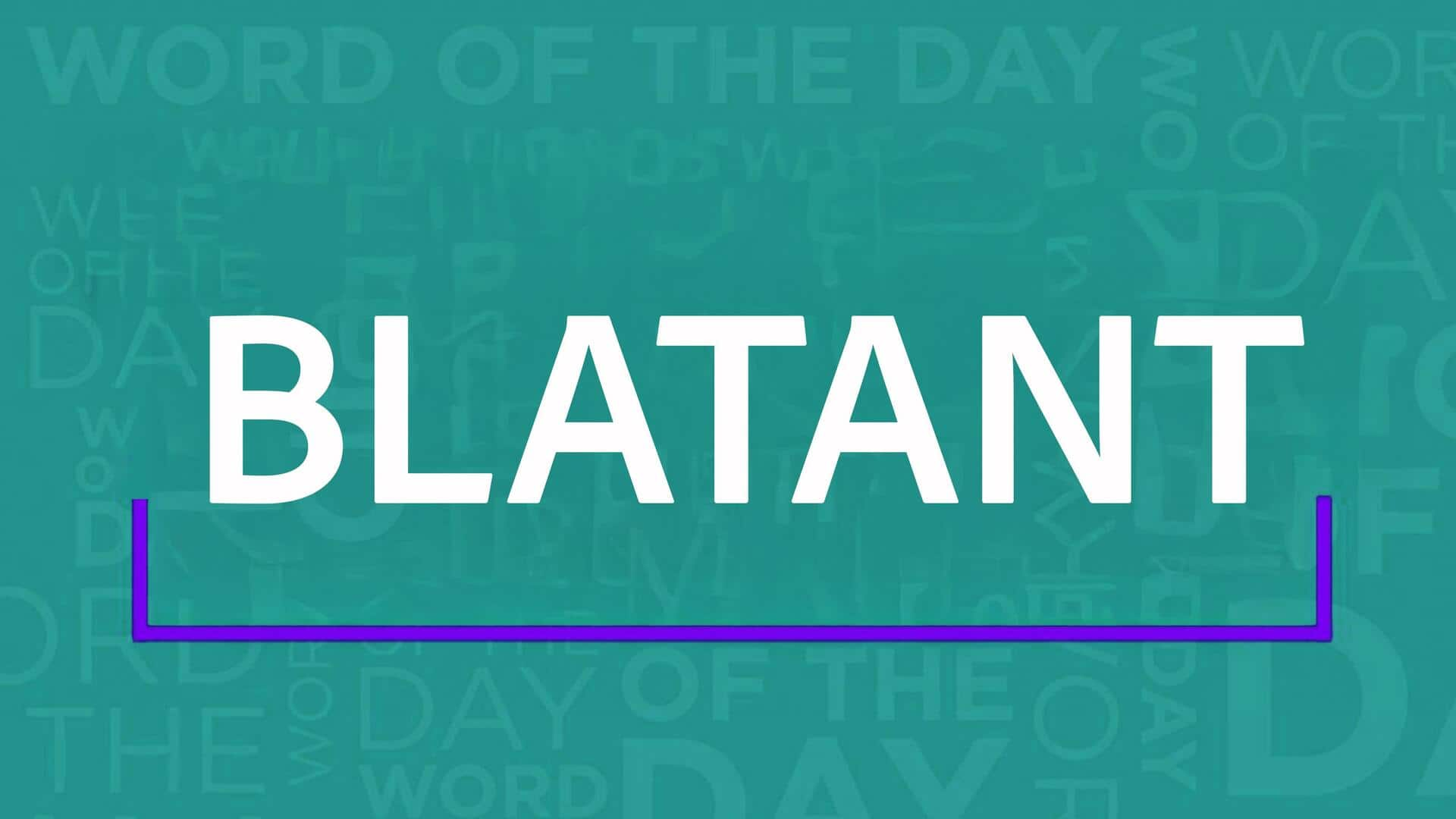
Word of the Day: Blatant
What's the story
"Blatant" is commonly used as an adjective. It means something that is very obvious, often unpleasantly so. It can describe bad behavior, lies, mistakes, or anything that stands out in an offensive or loud way. "Blatant" adds sharpness to your descriptions when subtlety is not enough. Let us learn more about this word.
Origin
Origin of the word
The word "blatant" first appeared in the 16th century, created by poet Edmund Spenser. He used it in The Faerie Queene to describe a loud, obnoxious monster. Over time, "blatant" evolved to mean anything openly offensive or glaring, keeping that sense of noisiness and unpleasantness alive.
Synonyms
Synonyms for 'blatant'
Some common synonyms for "blatant" include obvious, glaring, flagrant, overt, brazen, shameless, and unmistakable. Each word captures a sense of something being too loud to ignore, either visually, morally, or socially. "Blatant" is particularly useful when you want to describe bold wrongdoings without sugarcoating your words.
Usage
Sentence usage
Let's see how to use this word in different contexts. "He told a 'blatant' lie during the meeting." "The advertisement was a 'blatant' attempt to mislead customers." "Her 'blatant' disregard for the rules upset the entire team." "The spelling error was so 'blatant' that everyone noticed immediately."
Speech
Why use the word
"Blatant" is a strong, vivid word that instantly brings clarity to what you are trying to express. It shows that something is not just wrong, but glaringly so. Using "blatant" helps in writing and speech whenever you want to call attention to shameless actions or obvious mistakes.